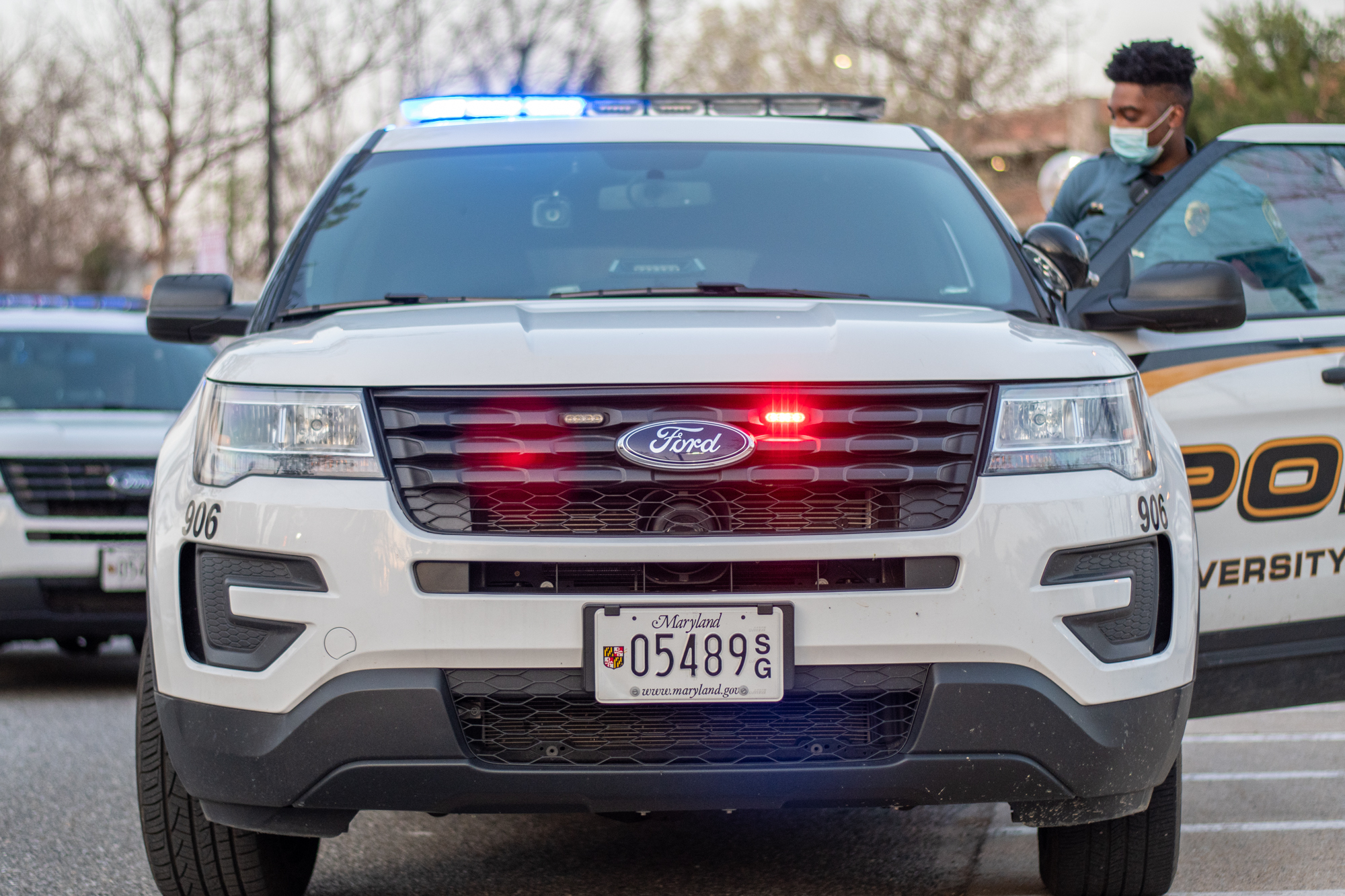A new program within University of Maryland Police called Lights On! provides drivers with car repair vouchers instead of citations.
Lights On!, a Minneapolis-based program under the parent non-profit MicroGrants, helps police departments provide vouchers worth up to $250 to drivers who get pulled over for broken or damaged tail lights or turn signals.
The voucher, which is redeemable for 15 days at the University Gas 2 Go on Route 1, will cover any costs related to lights on the vehicle, said chief David Mitchell.
Lights On!, which is now in 15 cities and at two universities, was developed by a MicroGrants board member who was concerned that low-income people are disproportionately stopped by police for equipment violations or failure, said MicroGrants CEO Don Samuels.
The first vouchers were made by ripping an eight-by-10 sheet of paper in half and calling that the voucher, Samuels said, but within months of pitching the idea to police departments around Minneapolis, about 20 police departments in the area agreed to partake in the program.
“It’s not a political thing. It’s not a commercial thing. It’s a project designed to heal the really bitter atmosphere that exists in interactions between police and community. That’s it.” Samuels said. “We want to make sure everyone understands the simplicity … the goodwill and the transparency of the project.”
[UMD faculty work to make data science accessible for high schoolers with disabilities]
When Mitchell learned about the Lights On! program from an article, he said he was “intrigued” because traffic stops are one of the most common contacts people have with law enforcement.
“We also know that sometimes when police stop folks … unintended consequences occur. There are disagreements, there is fear, especially today given the state of police-community relations,” Mitchell said. “So this is a way, one contact at a time, if you will, to change the narrative that only bad things happen when you get stopped by the police.”
Since starting the program in early February, University Police have issued 14 vouchers, Mitchell said.
“The officers love it as well … They said it’s certainly a great feeling that somebody smiles and says thank you and they’re excited that this [traffic stop] isn’t going to be a major expense for them,” he said.
As police across the nation work to regain trust from the communities they serve, Mitchell said he is advocating for other Maryland police departments to follow suit and get involved in the Lights On! program.
“And what I say to them is you [regain trust with the community] one contact at a time, every traffic stop, every call for service,” Mitchell said.
The owner of the University Gas 2 Go on Route 1, Peter Chong, said he agreed to be a Lights On! partner to help police-community relations and give back to the community and students.
“We’ve been in this location for 35 years, so therefore, I thought [the partnership] was fitting. It was a good match,” Chong said.
Each and every customer that has come in with a Lights On! voucher has said they are glad for the program and that they do not have to pay for their repairs out of pocket, Chong said.
[Maryland General Assembly to remove Russian investments, local businesses boycott]
“I give a good thumbs up to the University of Maryland Police for what they do. Their job is not that easy to do,” Chong said. “We’re willing to help the community to be a better place to live.”
MicroGrants currently funds half of the Lights On! program at this university and will continue to do so, as long as University Police can support the other half, Samuels said.
University Police currently have $4,000 committed to the Lights On! program and are looking for sponsors and community partners to keep the program running, Mitchell said.
If more police departments and organizations continue to prioritize creative solutions that benefit both parties, “breakthroughs can happen in our society that will transform us fundamentally,” Samuels said.
“Unbeknownst to the public, there’s all this energy here to make the public’s experience better, and it’s just happening organically between police and non-profit organizations.” Samuels said. “I’m hoping that this will be a message that we can find a different kind of way to solve problems that disproportionately punish low-income people.”



